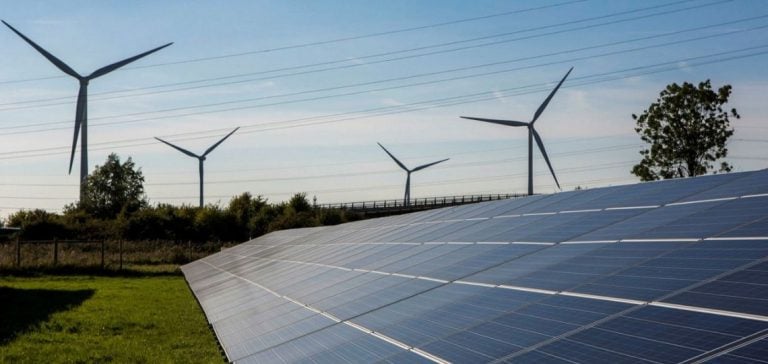The UK government is set to publish an action plan by the end of 2024, aimed at establishing a fully decarbonized electricity system by 2030.
The initiative, led by Chris Stark, head of the new Mission Control, represents a crucial step in the country’s energy transition.
The plan is in line with the commitments made by the Labour Party during its recent election victory, which focused on significantly increasing renewable energy generation capacity, including doubling onshore wind, tripling solar and quadrupling offshore wind.
Ambitious action plan targets
Stark points out that, although the initial measures are in place, there is still a long way to go to achieve these targets.
Speaking at a conference organized by the British Institute of Energy Economics, he said, “Right now, as we start to put the pieces in place, I agree that we’re only at the bangs of what’s possible.”
Nevertheless, he expresses growing optimism about the feasibility of these goals as the government moves forward with implementation.
In just two months, the new government has already lifted the de facto ban on onshore wind development in England, approved almost 2 GW of new solar capacity and overseen a record auction of renewable energy contracts.
However, Stark insists that the creation of the National Energy System Operator (NESO) is the most significant step to date, albeit one that has received less media attention.
NESO will play a key role in cross-sector planning of electricity and gas networks, influencing the future development of hydrogen, renewable energy generation, battery energy storage and carbon capture and storage.
Implementation challenges
Stark warns that NESO’s advice cannot be implemented under the current political regime.
Reforms are needed in areas such as support for renewables and management of queues on the power grid, which will have to be incorporated into the new Planning and Infrastructure Bill, due in 2025.
“It’s hard to overstate the importance of this legislation in giving credibility to the plan we will receive from NESO,” he added.
By the end of the year, the government plans to publish an action plan detailing how NESO’s vision can be achieved through concrete policies.
Stark says the aim is to make key decisions, rather than promising extensive consultation.
At the same time, key appointments within Mission Control will be announced shortly, strengthening the team dedicated to energy transition.
A vision for the future of energy
Stark asserts that the goal of decarbonizing the power sector by 2030 is a real commitment, not a stretch target.
He stresses that this initiative is not just about reducing emissions from the energy sector, but also about reinjecting speed and momentum into the country’s energy transition.
This could generate industrial and employment benefits for the UK, savings for consumers and improved energy security.
However, he also recognizes the risk of failing to achieve these goals if the government fails to act at a sustained pace.
“I accept that there is a very real risk of not achieving this if we can’t move at the lightning speed we need to,” he said.
This statement highlights the need for swift and decisive action to ensure the success of this transition.
Future developments under this initiative will be crucial in determining the UK’s energy trajectory.
The policy decisions and reforms needed to support the implementation of NESO’s recommendations will be key to achieving the decarbonization targets.
The government’s commitment to act quickly and effectively will be essential to turn these ambitions into tangible reality, while ensuring the country’s energy security and economic competitiveness.






















